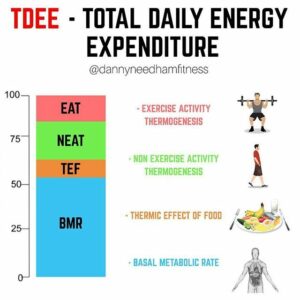What is sex addiction?
Sexual addiction is defined as obsessive involvement or engagement in sexual activities, especially sexual intercourse, notwithstanding negative effects.
Sexual addiction is one of the numerous sex-related illnesses under hypersexual disorder, according to proponents of a diagnostic approach.
read also: Why Porn Can Be Difficult To Quit: Get The Facts
People who report being unable to control their sexual desires, behaviors, or thoughts are referred to be sexually dependent. Hypersexuality (nymphomania and satyriasis), erotomania, Don Juanism, and paraphilia-associated diseases are all related or synonymous types of disordered sexual behavior.
Unless there is some form of intervening incident, those with sex addiction will be unable to cease their behavior. Personal and professional relationships may deteriorate as a result. If a person is unable to control their urges, there may be an increased risk of sexually transmitted infection, including HIV.
Am I Addicted to Sex?
The medical world is divided on whether or not sex addiction is a recognized illness.
As a result, sex addiction diagnostic criteria are frequently ambiguous and subjective. Several identifying characteristics of persons with sex addiction, however, have been proposed:
- Sex takes precedence over all other activities in a person’s life.
- Exhibitionism, public sex, sex with prostitutes, and regular attendance at sex clubs are all examples of sexual behaviors that are improper and/or dangerous.
- The persistent need for sex is frequently accompanied by regret, anxiety, despair, or humiliation.
- When alone, the individual participates in other types of sex, such as phone sex, pornography, or computer sex.
- The individual has several partners for sex and/or has extramarital relationships.
- When the individual is alone, he or she masturbates frequently.
- Your sexual behaviors cause you shame, embarrassment, or even self-loathing.
- You make pledges to yourself to change, but you don’t follow through.
- You’re so obsessed with sex that it’s like a ritual for you.
read also: Porn Addiction, Withdrawal, Symptoms, and Therapy
Relationships may be strained by compulsive behaviors, such as the stress of adultery — but some people may pretend to have a sex addiction to justify infidelity in a relationship.
To develop an addiction, a person does not have to engage in severe or “abnormal” sex. They will just be unable to stop themselves, despite the danger that their actions may cause.
What Causes an Addiction to Sex?
There are several hypotheses as to why someone develops a sexual addiction. Some of these include thinking of sex addiction as a type of impulse control, obsessive-compulsive condition, or relationship problem. They also include the notion that sexual addictions evolve as a result and means of dealing with early experiences, particularly sexual trauma, in certain people.
Sexual addiction, like porn addiction, can develop as a result of a variety of causes that affect every part of a person’s life. this include:
Biological
- Hormones: As one might anticipate, libido is affected by greater amounts of sex hormones such as testosterone or estrogen. You may be more likely to indulge in excessive sexual activities if you are prone to impulsive behavior and have high amounts of sex-related hormones.
- Genes: You may be predisposed to emotional dysregulation, impulsivity, or sensation-seeking behavior due to a genetic predisposition. You may also be predisposed to other characteristics linked to sexual addiction, such as anxiety or sadness.
Social
- social isolation: Not only does social isolation raise the possibility of seeking inappropriate forms of sexual gratification, but it also leads to a slew of other issues, such as depression and physical ailments, which can exacerbate sex addictions or harmful sex habits.
- Rejection in relationships and social groups might lead to other, less healthy methods of sexual fulfillment.
Psychological
- Mental health difficulties such as anxiety, depression, personality disorders, poor impulse control, and performance anxiety may coexist with sex addiction. Those who have Bipolar Disorder or a predisposition toward “manic” moods are far more prone to engage in excessive or dangerous sexual conduct.
- Environmental influences: Early-life environmental issues, such as maltreatment or sexual content exposure, might contribute to some of the underlying features that drive hypersexual behavior.
Can Sex Addiction Be Treated?
A medical expert with experience in the topic, such as a psychologist, psychiatrist, or sex therapist, is required to treat sexual addiction.
Treatment varies depending on the underlying reason, however, it is usually done in an outpatient setting with counseling and behavioral treatments.
Medications may be provided as part of the treatment approach if the sex addiction is linked to an anxiety or mood problem.
Outside of the scope of these clinically recognized diseases, there are presently no clear recommendations on the proper use of drugs to treat sex addiction.
Inpatient treatment programs
Sex addiction rehabilitation programs are available at a number of inpatient treatment institutions. People who have a sex addiction are frequently separated from their normal everyday routines for at least 30 days in order to help them recover control of their urges and begin the healing process. Individual and group treatment sessions are common in these sorts of programs.
12-step programs
Sex Addicts Anonymous (SAA) and Alcoholics Anonymous (AA) both use the same recovery approach (AA).
Members are not forced to completely abstain from sex, but they are urged to avoid obsessive and harmful sexual activity. An excellent support system is formed through attending group sessions with individuals who are dealing with similar issues.
Cognitive behavioral therapy
This sort of treatment can assist a person in identifying sexual impulse triggers and eventually teaching them how to change their actions. One-on-one sessions with a professional mental health therapist are used to accomplish this.
Medication
A course of pharmacological treatment may be beneficial to certain persons. Certain antidepressants may be useful in reducing cravings (which is separate from the potential side effects of some antidepressants that can cause decreased libido or impair other aspects of the sexual experience).
Sex Addiction and Mental Health Disorders
Sex addiction and mental illnesses, notably mood, anxiety, and personality disorders, appear to have a strong link. According to certain studies, almost 40% of those who have a sexual addiction or compulsion also have a history of mental problems including depression.
One of the reasons that antidepressants can be helpful in the treatment of sex addiction is the link between depression and sex addiction. Clinical depression, which frequently co-occurs with sex addiction, is a significant mental health condition that can be life-threatening if left untreated.
- A melancholy, apprehensive, or empty emotion that persists.
- Feelings of despondency.
- Guilt, worthlessness, and helplessness are all common emotions.
- Loss of enthusiasm for hobbies and pastimes.
- Fatigue.
- Having trouble focusing on things
- Sleeping excessively or insufficiently.
- Irritability and restlessness.
- Suicide attempts or ideas


